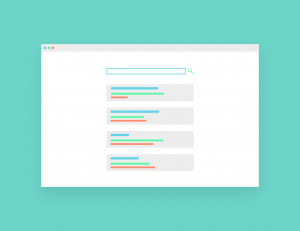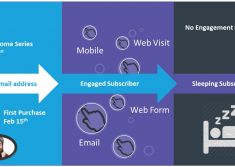If you’ve done any research into funding your small business, you’ve likely come across enough different options to make your head spin. Community bank or online lender? Traditional term loan or equipment financing? Interest rates. Repayment terms. Penalties. Collateral. The list of factors to consider goes on and on and on.
But if you have a very small business and only need a small amount of money, most of these loan options probably sound like way more than you need. That’s where the U.S. Small Business Administration’s Microloan program comes in. If your business is looking for less than $ 50,000 in funding, this may be exactly the solution you need.
What is the Small Business Administration?
The Small Business Administration (SBA) is dedicated to helping small businesses succeed. Not only do they provide entrepreneurial development with education, information, technical assistance and training, they provide government contracting, and access to capital.
Since small businesses have a difficult time qualifying for your traditional brick and mortar bank loans, the SBA guarantees a percentage of your loan to intermediary lenders. This backing minimizes the risk to the lender and in turn, they’re more inclined to approve you for a loan.
The SBA offers multiple small business loan programs depending on your business needs: the 7 (a) Program, CDC/504, Disaster loans, and their Microloan Program. We’ll focus on the last one—the Microloan Program.
What is the SBA Microloan Program?
A microloan is just what it sounds like—a very small loan, typically ranging anywhere from $ 500 to $ 50,000. Historically, SBA-backed microloans average around $ 13,000 each.
Since the big banks are reluctant to offer smaller loans, the SBA microloan can be a great option for first-time borrowers or businesses that need a little cash to get going, but not a huge sum. While the SBA doesn’t lend money directly to borrowers through this program, they work through intermediary lenders to fund small loans that might not otherwise be worthwhile for the lender to approve.
Another benefit of this system is that the SBA’s chosen intermediaries tend to be local lenders who have specific experience mentoring and encouraging very small businesses. Many of these lenders are even known to give priority to women-owned and minority-owned businesses as a way to encourage entrepreneurship among these particular groups.
Keep in mind that since these loans are for those who have little to no borrowing experience, it’s likely that you’ll be asked to put up collateral, as well as a personal guarantee in order to secure the loan. Additionally, the microloan program comes with a few stipulations for how you’re able to spend your cash.
What Can SBA Microloans Be Used For?
Although microloans cannot be used for repaying existing debt or purchasing real estate, there are still a number of things you can microloan funds. Here are a few potential uses that may help you to achieve your business goals:
Working Capital
Funds from your SBA microloan can be used as general working capital to cover a lot of your day to day business needs, such as paying expenses like rent and utilities for your office or retail space, hiring employees, and more.
Inventory or Supplies
Do you need to purchase inventory for your retail shop, raw materials to make your product, or other tools and supplies? All of these expenses can be covered using your SBA microloan funds.
Machinery or Equipment
If you are just starting out in business, you’ll likely need some equipment to get yourself up and running. If you own a bakery, for example, you can’t very well operate without an oven, right? An SBA microloan is a great way to fund these larger initial purchases.
Furniture or Fixtures
The funds from your microloan can also be used to purchase furniture for your office, tables and chairs for your restaurant, or even decor for your space. Of course, keep in mind that you do have to repay this loan—so it’s best not to spend it all on fixtures for aesthetics purposes.
Repayment Terms, Interest Rates, and Fees
Your repayment terms will vary according to the amount of your loan, how you plan to use the funds, and the requirements determined by your intermediary lender. However, the maximum repayment term for an SBA Microloan is six years.
The interest rates for an SBA microloan also vary depending on the intermediary lender you work with, but generally range between 8% and 13%.
The Application Process
In order to apply for the SBA Microloan Program, you first need to contact an SBA-approved intermediary lender. Depending on the lender you work with, you may be required to fulfill training or planning requirements before your loan application will be considered.
Of course, when you need cash on hand quickly, these training and planning requirements can initially feel like extra hoops to jump through. But try to remember that these intermediary lenders are experienced working with small business owners, and they have created these processes in an effort to help you and your business succeed. In fact, many borrowers realize down the line that these training components may actually have been the most beneficial part of the microloan program!
Since the SBA works with intermediary lenders, as opposed to handing you the cash themselves, the application process can be a long one. In addition to any training or planning requirements, both parties will review your application separately—meaning the process, as a whole, can take months. That said, if you’re able to wait awhile for funds, the low-interest rates and added benefits of working through the microloan program may be worth your patience.
Is A Microloan Right For You?
If you need cash fast, need money to purchase real estate, or want to refinance more expensive existing debt—getting funding through the Small Business Administration won’t be your best option.
However, if you don’t mind the wait and your needs for cash are covered under the microloan umbrella, this can be a great financial resource for you and your business. The SBA Microloan Program is comparatively easy to qualify for and a great way for businesses that are just starting out to get the funding they need.
Business & Finance Articles on Business 2 Community(45)






